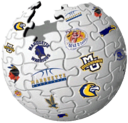In Blackheart's guest post about pace and defensive efficiency, he looked at how the book is out on Marquette. In a follow-up post on MUScoop, I mapped out a simple model of pace to defensive efficiency, ending up with a preferred pace of 70 possessions or more.
The most recent game against Villanova helped bear these ideas out. The pace for the game was 65 possessions, which was slower than their average (68) as well as ours (69). The net result was that Villanova scored 1.15 points per possession (either at or slightly higher than expected). Again.... slow Marquette down and you can beat them.
However, Buzz made a decision in the course of the game that prompted us to start thinking. Down by fourteen points at Villanova with about ten minutes to go, Marquette brought out the full court press. Over the course of the next seven minutes, Marquette managed to whittle the Nova lead from fourteen points down to three. The performance was impressive, Buzz' gambit paid off. What did those stats look like during this period?
During this stretch Marquette scored 1.61 ppp vs Villanova's 1.01, handily winning the eFG% battle (68% vs 44%) as well as the turnover battle (8% vs 31%) convincingly. MU gave up more free throws during this period. (Well, that was happening the whole game.) Played at a full 40 minutes, the press would have resulted in a pace of 71 possessions per game. Not only did the team drastically improve their efficiency, but MU held Villanova to an efficiency far less than the game average.
Is this a strategy the team should use more often? We think they should.
First, when a team is attempting to slow down Marquette, the press helps increase the pace of the action. Marquette can counter the "burn" offenses with press defenses to force a quicker pace. Second, although the press can give up quick easy baskets, one needs to ask "compared to what?" If a slower game is already hurting MU's defensive efficiency, then it's not like the opponent isn't already getting relatively easy buckets.
We'll note that one stretch of seven minutes is a pretty small sample size. In addition, we do not believe that the press is an effective complete game strategy. Over the long run, quality teams will consistently beat the press. Further, the press is a poor strategy against inferior opponents. Besides, Buzz's bench is too short to press regularly.
However, we'd like to see Marquette break out the press for longer stretches during the game (like timeout to timeout) as part of the ongoing work the team does to change defenses. Not only could it help MU set the tempo of the game, but it could also provide another defensive wrinkle for opposing coaches to contend with.
Saturday, February 05, 2011
Should Marquette Press More?
Written by
Rob Lowe
at
5:19 AM
![]()
Labels: defense, dr blackheart, full court press
Subscribe to:
Post Comments (Atom)

2 comments:
I have never understood why more teams don't press more often; particularly ball movement teams like Marquette. Stretching the floor and forcing opponents to pay through transitons seems to be the best way to force the tempo. Thanks for putting together the research and analysis to support this idea. I'll feel less crazy next time I am yelling at Buzz through the TV.
Yes, they should be pressing. This team has been good, but not good enough to beat top 20 teams. To change that I would use our depth. Buzz is still treating this team like his past few where the depth was poor. Guys like Jones and Blue are lost in the halfcourt against the Big East. They could be used much more effectively in a fast paced game.
It is a risk to employ that strategy, but it would be better than "almost good enough".
Post a Comment